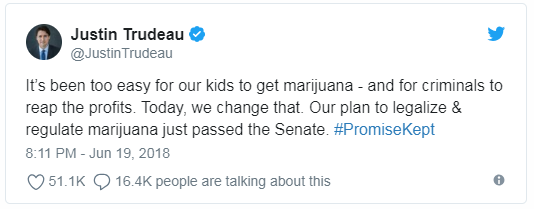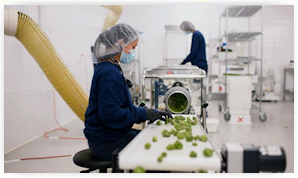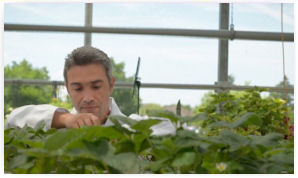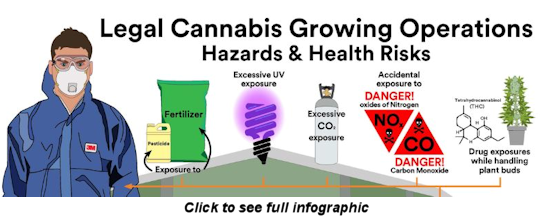|


Canada becomes second nation in the world to legalize marijuana
"Keeping Profits Out of the Hand of Criminals & Organized Crime"
Canada is only the second country in the world -- and the first G7
nation -- to implement legislation to permit a nationwide marijuana
market. In the neighboring US, nine states and the District of
Columbia now allow for recreational marijuana use, and 30 allow for
medical use. Uruguay was the first country to
legalize marijuana's production, sale and consumption in
December 2013.
Bill C-45, otherwise known as the Cannabis Act, stems from a
campaign pledge of Prime Minister Justin Trudeau to keep marijuana
away from underage users and reduce related crime.
Although the Canadian government had initially stated its intent to
implement by July 2018, provinces and territories, who will be
responsible for drafting their own rules for marijuana sales, have
advised that they would need eight to 12 weeks after the Senate
approval to transition to the new framework.
On June 19, 2018 Justin Trudeau tweeted:

"This is an historic milestone for progressive policy in Canada,"
she tweeted. "This legislation will help protect our youth from
the risks of cannabis while keeping profits out of the hands of
criminals and organized crime."
Once the
bill is formally approved, adults will be able to carry and
share up to 30 grams of legal marijuana in public. They also will be
allowed to cultivate up to four plants in their households and
prepare products such as edibles for personal use.
However, stringent rules will still govern the purchase and use of
marijuana.
Consumers are expected to purchase marijuana from retailers
regulated by provinces, territories or -- when neither of those
options are available -- federally licensed producers. Marijuana
will also not be sold in the same location as alcohol or tobacco.
The Canadian government has also implemented changes to their
impaired driving laws, to address repercussions for driving
under the influence of cannabis.
The bill set a floor on the minimum age of the consumer at 18 years,
and makes the production, distribution, or sale of cannabis products
an offense for minors.
 Market Boom Market Boom
C-45 is also expected to spark a billion-dollar industry, given
total spending on marijuana could
surge as high as 58%, especially as users are expected to be
willing to pay a premium for legal access to the drug.
In the United States, BDS Analytics estimated that the pot industry
took in nearly $9 billion in sales in 2017. The revenue from the
sales is equivalent to the entire snack bar industry.
As provinces decide local rules of implementation, marijuana
availability will vary across the country. In Alberta, recreational
weed will be widely available at more than 200 private retailers
across the province. On the opposite end of the spectrum,
marijuana availability will only be provided in 40 state-run
shops in Ontario. In Newfoundland and Labrador, it will be available
in Loblaws grocery stores.
cnn.com
Upcoming Cannabis Legalization is
Dominating All Canadian News
RCC Plans Half Day Special Cannabis Forum
 From Provinces struggling with licenses, locations, amounts,
organized crime, and security. Not a day goes by without articles
appearing across Canada. Even the Retail Council of Canada is
planning a
special half day session
the day after their upcoming Retail Secure Conference devoted to the
subject. From Provinces struggling with licenses, locations, amounts,
organized crime, and security. Not a day goes by without articles
appearing across Canada. Even the Retail Council of Canada is
planning a
special half day session
the day after their upcoming Retail Secure Conference devoted to the
subject.
This is the precursor for the states as the U.S. trend continues as
Canada will be the subject matter experts going forward. As
mainstream retail will be involved or at least impacted in some form
sooner or later. -Gus Downing
LP & Security Impact
Legalization of cannabis a groundswell of opportunity for security providers
 "This is a huge business opportunity," says David Hyde, when asked how the
upcoming legalization of recreational cannabis under The Cannabis Act will
impact the security business. "This is a huge business opportunity," says David Hyde, when asked how the
upcoming legalization of recreational cannabis under The Cannabis Act will
impact the security business.
Hyde, owner and principal consultant at David Hyde and Associates, a risk
management and security services consultancy based in Toronto, is not alone in
this belief. Even prior to legalization, companies and consultants have seen
opportunities to expand their business under the ACMPR, or the Access to
Cannabis for Medical Purposes Regulation.
Expanding growth opportunities
Despite the difficulties of entering a new, somewhat "unconventional" industry,
there is plenty of evidence to indicate the cannabis market will provide
opportunities for growth.
"Within a six-month span, we have grown from just under 20 staff to more than
100 Canada-wide, and we project that we will exceed 200 by the fall of this
year," says the owner of 3Sixty Secure.
Retail = revenue
For security service providers looking to enter the market, Hyde says he
believes there are plenty of new opportunities. Today, there are 90
cultivation sites that are federally regulated, he says, and this will
grow to 150 by mid-summer. Each of these sites will need security systems
and guards.
Regulatory gaps
Part of doing your homework includes being aware of regulatory gaps that
impact security, particularly transportation security. In fact, under the
ACMPR, there are no regulations regarding the transportation of medical
cannabis. As a result, the industry, particularly providers of secure
transportation services, are setting their own security standards.
Holistic security
To capitalize on the cannabis market, not only is it important to be aware of
regulatory gaps, but also of the strict physical security regulations under the
ACMPR. The ACMPR focuses on barriers, doors, gates, ceilings and other
aspects of the physical security of cannabis facilities. It is also focused on
technological security and systems, including cameras, access control,
intrusion, and more, explains Hyde.
canadiansecuritymag.com
Security policies and legal marijuana
With legal recreational cannabis coming to Canada next year,
security professionals may be faced with new questions. Experts and
consultants provide an update on the current legal status and what
we can expect in 2018.
canadiansecuritymag.com
The Post-Legalization Economy: Jobs &
Stocks
The World Is Watching The New $5.7B Industry & 150K New Jobs Come
Oct.
Want a job in the cannabis industry? Try these Canadian colleges
 Finding professors to teach the first generation of pot
professionals has proven challenging Finding professors to teach the first generation of pot
professionals has proven challenging
When legal marijuana hits Canadian stores this October, every
other country will be watching and scrutinizing what happens in our
market. "Canada is going to lead this industry globally," says
David Purcell, director of emerging business, at BC's Kwantlen
Polytechnic University.
With legalization, a whole underground industry is set to become
legit; Statistics Canada said $5.7 billion was spent on cannabis
last year, making it a bigger sector than alcohol or tobacco.
Up to 150,000 new workers-growers, sellers, store managers, retail
clerks-will need training. In response, Canadian post-secondary
institutions with new classes and programs to meet new market
demands. But how do you build a cannabis curriculum on short order?
And how do you find reputable teachers, given many experts likely
gained their wisdom while growing an illegal product? By necessity,
colleges and universities are getting creative in their search for
talent.
macleans.ca
Even Investors Are Paying Close Attention
Motley Fool says cannabis industry moving at lightning speed but
will need time to take shape
 I
don't know if I've ever covered an industry that moves as quickly as
the cannabis space, with companies jockeying for position and
rushing to strike deals and make announcements in an attempt to gain
an edge in an exceedingly competitive and emerging legal industry.
I've especially seen a lot of traders/investors line up to buy
cannabis stocks in anticipation of that October 17 legalization
date. Thing is - there won't necessarily be a lot that changes right
away on October 17. It will take time for the distribution and
retail sales of cannabis -- which will be different in each
province -- to take shape. I
don't know if I've ever covered an industry that moves as quickly as
the cannabis space, with companies jockeying for position and
rushing to strike deals and make announcements in an attempt to gain
an edge in an exceedingly competitive and emerging legal industry.
I've especially seen a lot of traders/investors line up to buy
cannabis stocks in anticipation of that October 17 legalization
date. Thing is - there won't necessarily be a lot that changes right
away on October 17. It will take time for the distribution and
retail sales of cannabis -- which will be different in each
province -- to take shape.
In short, it won't be until well into 2019 when we get an idea of
which cannabis companies are indeed gaining traction and which ones
are falling short of expectations. This is why the idea of buying
cannabis stocks in anticipation of a "pop" before or on October 17
doesn't strike me as all that effective a strategy.
fool.com
Cannabis companies seeing big business in bud
The Retail &
E-Commerce Impact
Public Vs. Private - Ontario - Canada's Guinea Pig
Ontario 'freezes' Cannabis Store leasing ahead of possible shift,
sources say
 The previous Ontario government committed to opening 40
government-owned retail storefronts in the first year of
legalization, which is set to begin Oct. 17. The previous Ontario government committed to opening 40
government-owned retail storefronts in the first year of
legalization, which is set to begin Oct. 17.
"Ontario will be ready with a system in place that meets the
objectives of protecting youth and eliminating the illegal market,"
said Clint Thomas, communications director for Ontario's finance
minister.
Shift to private model?
If those consultations result in a shift away from a government
monopoly, that could open the door for potentially hundreds of
privately owned cannabis outlets.
Experts and academics have urged the newly elected Progressive
Conservative government to carve out space for entrepreneurs to
put the legal industry on a more competitive footing with the black
market.
"The current plan to have 40 stores open by year end and 150 by
2020 is woefully inadequate in usurping the black market for
cannabis, and everyone knows it," Damas said.
The OCS is set to announce supply arrangements with licensed
producers in the coming weeks, but it's unclear where exactly the
cannabis products will be sold. It's possible Canada's largest
market, Ontario, may start with only online sales.
mjbizdaily.com
Editor's Note: Shoppers Drug Mart, Canada's biggest drug store
chain, was reported to have filed for licenses to sell months ago.
That brings mainstream retail into the game, and how does that play
on Loss Prevention?
Who will sell legal marijuana in Ontario, and where? It's no longer
clear
With less than 90 days to go until legal recreational marijuana is a
reality on Oct. 17, it's no longer clear how many legal cannabis
stores Ontario is planning to open, or who will run them. An FAQ
published by the Ontario Cannabis Store (OCS) still says the agency
plans to open 40 bricks-and-mortar stores in 2018. However, a
spokesperson for the Liquor Control Board of Ontario, the OCS's
parent agency, would not say if it still planned to meet that
target, writing that "updates on OCS retail openings will be
provided in the near future."
globalnews.ca
This Influential Marijuana CEO Believes Amazon Will Eventually Sell
Cannabis
 The
legalization of adult-use cannabis in Canada is an especially big
deal. Marijuana growers had been expanding their capacity at a
breakneck pace in anticipation of the Cannabis Act passing, which it
finally did on June 19. By Oct. 17, weed will officially be legal
for adult purchase, opening the door to what could be a $5
billion windfall once the industry is fully ramped up (which
could take a few years). The
legalization of adult-use cannabis in Canada is an especially big
deal. Marijuana growers had been expanding their capacity at a
breakneck pace in anticipation of the Cannabis Act passing, which it
finally did on June 19. By Oct. 17, weed will officially be legal
for adult purchase, opening the door to what could be a $5
billion windfall once the industry is fully ramped up (which
could take a few years).
With such big dollar signs being tossed around, the question most
folks have been asking, including Wall Street professionals, is what
industry might want to dip its toes into the water? Will it be more
spirit manufacturers following in the footsteps of Constellation
Brands, or could Big Tobacco look to turn around ailing sales by
partnering or investing in marijuana businesses? Or, dare I say,
will e-commerce giant Amazon.com get wind of the marijuana
industry's potential and look to nab its slice of the pie?
fool.com
Manitoba aims to boost number of cannabis stores in province
As Legalization Looms, Canadian Companies Rush To Produce Weed
Drinks
Canada will allow pot, but Facebook isn't allowing ads talking about
it
Regulations & Protections
Health Canada Security Rules for Medical Marijuana Producers
 Licensed producers will be required to store cannabis within a
secure area of their facility. This area must be secured with
physical barriers, an intrusion detection system, and 24/7 visual
monitoring and recording capability. A record of the identity of
every person entering or exiting the storage area must be kept, and
access to those areas must be restricted to those whose presence is
required by their work responsibilities. In addition, licensed
producers will no longer be required to maintain 24/7 video
surveillance inside the rooms where cannabis is being cultivated,
propagated or harvested. All access points to cultivation,
propagation and harvesting rooms will, however, continue to be
subject to 24/7 video surveillance and recording in order to record
all entries and exits," the agency said in the announcement. Licensed producers will be required to store cannabis within a
secure area of their facility. This area must be secured with
physical barriers, an intrusion detection system, and 24/7 visual
monitoring and recording capability. A record of the identity of
every person entering or exiting the storage area must be kept, and
access to those areas must be restricted to those whose presence is
required by their work responsibilities. In addition, licensed
producers will no longer be required to maintain 24/7 video
surveillance inside the rooms where cannabis is being cultivated,
propagated or harvested. All access points to cultivation,
propagation and harvesting rooms will, however, continue to be
subject to 24/7 video surveillance and recording in order to record
all entries and exits," the agency said in the announcement.
It said licensed producers "will need to continue to meet all the
other robust, multi-layered physical security requirements outlined
under the ACMPR, namely securing the perimeter of their site in a
manner that prevents unauthorized access, ensuring that this
perimeter is visually monitored at all times and that intrusion
detection systems are installed and operate at all times. All indoor
areas where cannabis is present will continue to require physical
barriers that prevent unauthorized access, intrusion detection
systems, visual monitoring and recordings, and restricted access and
entry and exit logs. Strict inventory control measures and regular
reporting of cannabis production, inventory and shipments to Health
Canada will continue to be required and verified during Health
Canada's inspections of producers, providing another important
regulatory control to ensure that cannabis is not diverted to the
illegal market. Finally, licensed producers and applicants must
continue to meet all other requirements under the ACMPR, which
represents one of the most robust frameworks in the world for
ensuring effective control and regulation of the production of
cannabis for medical purposes."
ohsonline.com
Health Canada Proposes Fees to Recover Costs of Regulating Cannabis
Canada's Cannabis Act will come into force Oct. 17, 2018. With the
government committed to fully recovering the costs of regulating the
new cannabis industry, Health Canada on July 12 launched a 30-day
public consultation on the proposed approach to cost recovery for
the regulation of cannabis. "The proposed cost-recovery approach is
guided by the principles that fees should allow for both larger and
smaller players in a diverse market. The approach proposes to
collect no more than the cost of delivering the regulatory program,"
the agency's announcement said.
The agency proposes to scale fees according to the size of the
business and to provide for lower fees for the newly proposed
micro-scale license holders, with some types of license-those for
research, analytical testing, and hemp production-being exempt from
fees. The public and interested stakeholders are asked to comment
online by Aug. 13, 2018.
The cost-recovery proposal includes four fees:
●
A fee for screening license applications
●
A fee for conducting security screening of key persons
●
A fee for reviewing applications to import or export cannabis for
scientific or medical purposes
●
An annual regulatory fee to cover other regulatory costs,
including the detailed review of license applications, issuing
licenses, inspections, and compliance and enforcement activities.
ohsonline.com
AIHA: Cannabis Industry Workers Need Protection
The American Industrial Hygiene Association's The Synergist has
published an article discussing the need for proper PPE by workers
in the young but expanding cannabis industry. The article, titled
"Growing Pains," addresses the hazards that workers can encounter in
the indoor cannabis process.
Some hazards their article discusses include exposure to pesticides,
marijuana dust and resin, ultraviolet light from high-output grow
lamps, and mold spores. Recommended PPE includes gloves,
respirators, safety glasses, and faceshields.
"The Synergist article brings to light important health and safety
issues that few have examined in the rapidly developing cannabis
industry," said AIHA CEO Lawrence Sloan, CAE. "In the rush to
capitalize on the new opportunities unleashed by state legalization,
the protection of workers must not be overlooked, but should instead
be placed front and center. As with every industry, AIHA and its
members are called to use the type of unique expertise exemplified
by this article to protect the health and safety of workers,
wherever they may be."
ohsoline.com

Health Canada Warns Medical Marijuana Producers About Sponsoring
Events
Black Market &
Security Concerns
One important question no one is
asking but ultimately will be answered
What happens when you take a $5.7B
market away from organized crime?
Is it similar to stopping crime in one store and forcing it to
another location? These groups aren't going to disappear and they're
losing their income.
Certainly a number will be absorbed into the market. But Canadian
officials are screening those people and saying they won't allow
those involved in the illegal trade into the market.
"We're not going to employ anyone who's been illegally producing
cannabis-that's very important," says Unwin. (Instructors require
full security checks through the RCMP.)
So where do they go? Just a thought -Gus Downing
Why Canada's pot legalization won't stop black-market sales
As Canada's Liberal government prepares to legalize recreational
marijuana use this summer, the biggest remaining obstacle to
regulated sales will be competition from a thriving black market,
according to cannabis investors, researchers, policy analysts and
government data.
Many buyers of illegal pot will have little incentive to switch
to legal weed, which is expected to be more expensive and less
available because of strict regulations on sales, according to
hedge fund GTV Capital, which invests almost exclusively in Canadian
cannabis stocks, and the Marijuana Policy Group, a U.S. research
firm.
If the price difference allows the black market to compete, that
will hamper the public benefits of legalization - legitimate
investment, job creation and tax revenue - and complicate
efforts to stamp out crime associated with illegal drug trafficking.
Statistics Canada, working with police data in a 2014 study, found
organized crime involvement in about a third of marijuana production
and trafficking.
reuters.com
Border security raises concerns for cannabis legalization in Canada
Carrying cannabis or cannabis products like edibles and oils across
the border will remain a criminal offence, regardless of its legal
status in Canada. Additionally, Canadian citizens who admit to
having smoked up - ever - may face a life-long ban from entering the
U.S. if they admit to having done so to American border agents.
dailyhive.com
Canadian police warn they aren't ready for cannabis legalization
challenges
 Share on Facebook
Share on Facebook
 Share on Twitter
Share on Twitter
 Share on LinkedIn
Share on LinkedIn
|






 "This is a huge business opportunity," says David Hyde, when asked how the
upcoming legalization of recreational cannabis under The Cannabis Act will
impact the security business.
"This is a huge business opportunity," says David Hyde, when asked how the
upcoming legalization of recreational cannabis under The Cannabis Act will
impact the security business. Finding professors to teach the first generation of pot
professionals has proven challenging
Finding professors to teach the first generation of pot
professionals has proven challenging I
don't know if I've ever covered an industry that moves as quickly as
the cannabis space, with companies jockeying for position and
rushing to strike deals and make announcements in an attempt to gain
an edge in an exceedingly competitive and emerging legal industry.
I've especially seen a lot of traders/investors line up to buy
cannabis stocks in anticipation of that October 17 legalization
date. Thing is - there won't necessarily be a lot that changes right
away on October 17. It will take time for the distribution and
retail sales of cannabis -- which will be different in each
province -- to take shape.
I
don't know if I've ever covered an industry that moves as quickly as
the cannabis space, with companies jockeying for position and
rushing to strike deals and make announcements in an attempt to gain
an edge in an exceedingly competitive and emerging legal industry.
I've especially seen a lot of traders/investors line up to buy
cannabis stocks in anticipation of that October 17 legalization
date. Thing is - there won't necessarily be a lot that changes right
away on October 17. It will take time for the distribution and
retail sales of cannabis -- which will be different in each
province -- to take shape.

 Licensed producers will be required to store cannabis within a
secure area of their facility. This area must be secured with
physical barriers, an intrusion detection system, and 24/7 visual
monitoring and recording capability. A record of the identity of
every person entering or exiting the storage area must be kept, and
access to those areas must be restricted to those whose presence is
required by their work responsibilities. In addition, licensed
producers will no longer be required to maintain 24/7 video
surveillance inside the rooms where cannabis is being cultivated,
propagated or harvested. All access points to cultivation,
propagation and harvesting rooms will, however, continue to be
subject to 24/7 video surveillance and recording in order to record
all entries and exits," the agency said in the announcement.
Licensed producers will be required to store cannabis within a
secure area of their facility. This area must be secured with
physical barriers, an intrusion detection system, and 24/7 visual
monitoring and recording capability. A record of the identity of
every person entering or exiting the storage area must be kept, and
access to those areas must be restricted to those whose presence is
required by their work responsibilities. In addition, licensed
producers will no longer be required to maintain 24/7 video
surveillance inside the rooms where cannabis is being cultivated,
propagated or harvested. All access points to cultivation,
propagation and harvesting rooms will, however, continue to be
subject to 24/7 video surveillance and recording in order to record
all entries and exits," the agency said in the announcement.